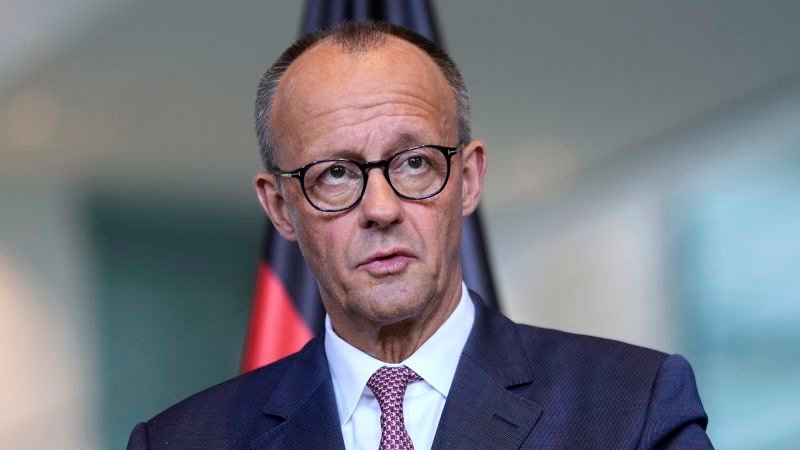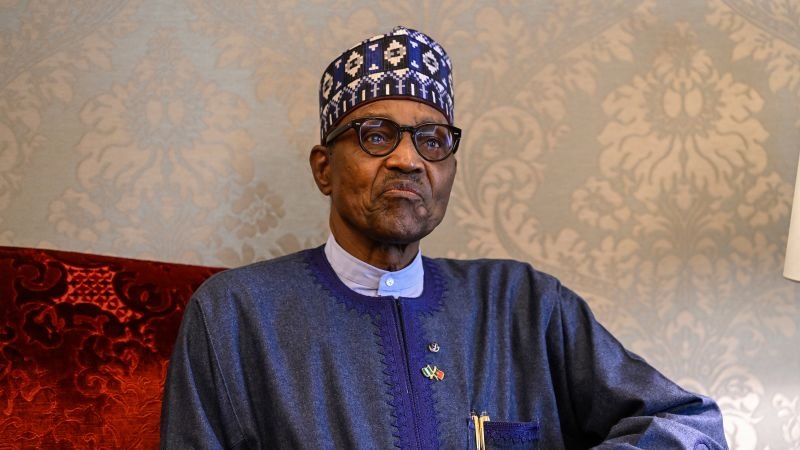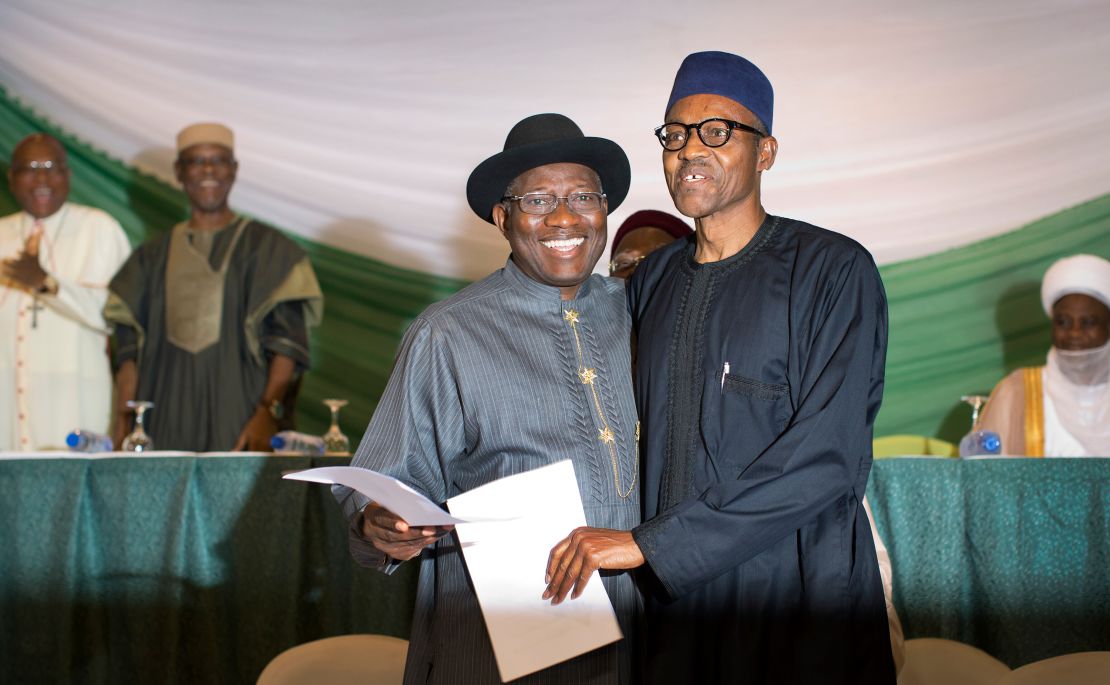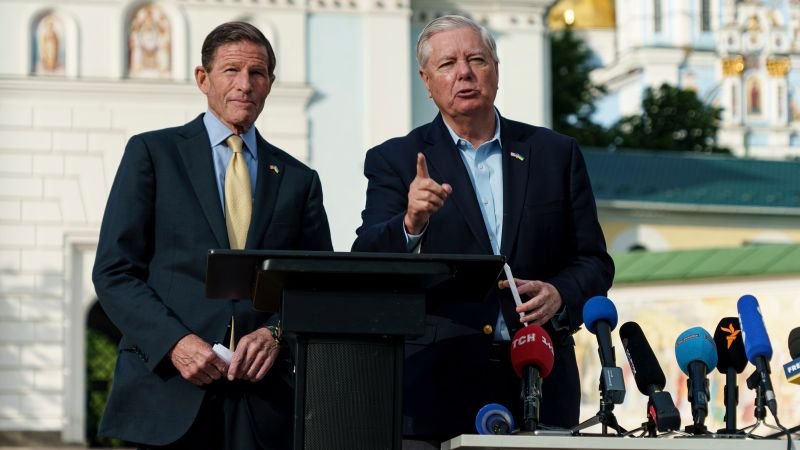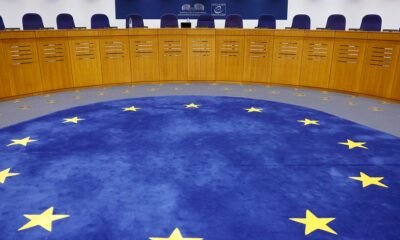Berlin
CNN
—
Friedrich Merz, the newly inaugurated German chancellor, will take a seat in the Oval Office on Thursday for his first in-person meeting with US President Donald Trump.
The meeting comes as a series of high-stakes international issues once again come to the fore. Trump has issued another round of warnings to the European Union on tariffs; the war in Ukraine appears no closer to ending; and pressure is mounting on Israel over the deteriorating humanitarian situation in Gaza.
Since taking office, Merz has been on a tour of European capitals, meeting with France’s Emmanuel Macron, Britain’s Keiier Starmer and Poland’s Donald Tusk – before they all appeared in Kyiv alongside Ukraine’s President Volodymyr Zelensky in a show of European unity.
The one major omission has been a meeting with Trump. While there have been phone calls between the two, the handshake accompanied by the frantic clicks of camera shutters will mark the start of the new German-US relationship.
Germany’s status as the economic powerhouse of Europe and Merz’s repositioning of the country as a leader in European security – which includes a commitment to beef up its military and fall in line with Trump’s demands for NATO members to increase defense spending – underscore the importance of a successful encounter.
There is also the chance of an explosive diplomatic broadside, as seen with President Zelensky and, more recently, South Africa’s President Cyril Ramaphosa.
Both Vice President, JD Vance, and Secretary of State Marco Rubio have recently criticized Germany’s decision to classify the far-right Alternative for Germany (AfD) political party, as “certainly right-wing extremists”, and therefore expanding surveillance on the party.
Both took to X, to express their anger at what they called the German “establishment” for the designation. Secretary Rubio said, “that’s not democracy – it’s tyranny in disguise”.
Vance followed up by saying Germany is trying to redivide the country, “the West tore down the Berlin Wall together. And it has been rebuilt — not by the Soviets or the Russians, but by the German establishment.”
The German Foreign Ministry, for its part, said on X, the decision was democratic, “the result of a thorough & independent investigation to protect our Constitution & the rule of law.”
Merz, a few days later, also rejected the statements, saying “Germany was liberated from tyranny by the US; Germany is stable, liberal, and democratic today. We don’t need a remedial lesson in democracy.”
The expectation though, is that this will be a cordial meeting.
Wolfgang Ischinger, a former German ambassador to the United States, told CNN that Merz is “totally ready” for the meeting and said the chancellor’s personality and manner of communicating would help him win over the president.
“He doesn’t mince his words… That’s not Friedrich Merz’s style. He says what he thinks. He’s transparent. He’s direct. And I would imagine that that is something which Donald Trump will hopefully learn to appreciate.”
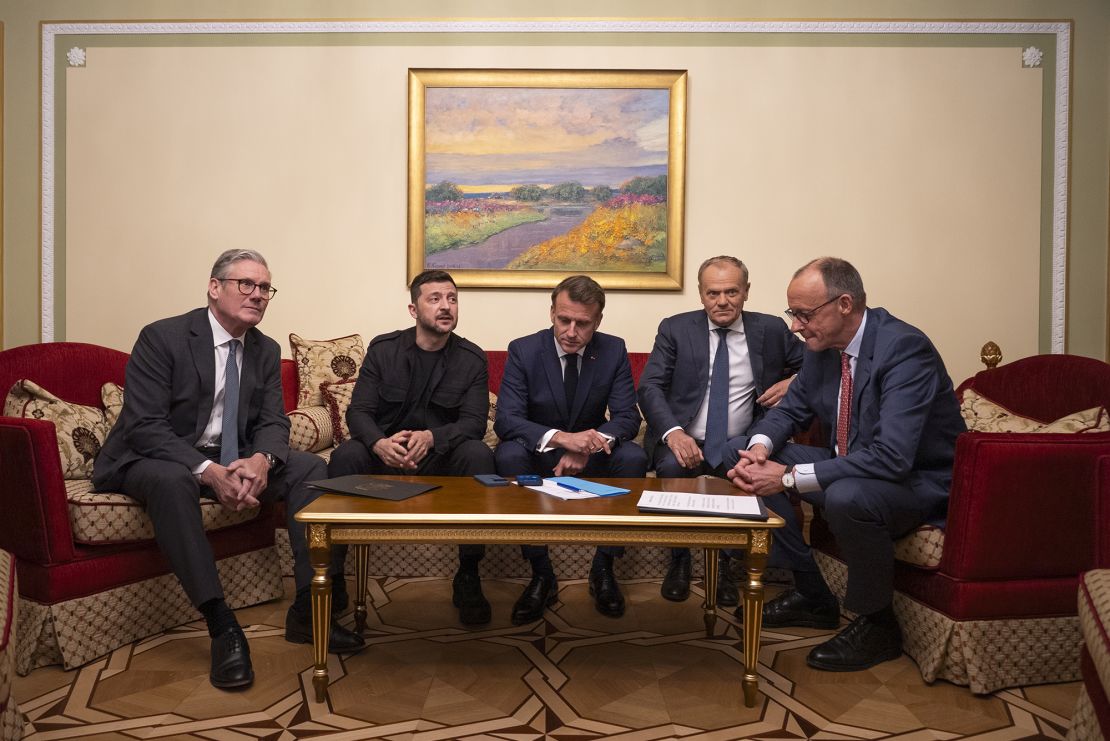
That directness, particularly as regards Europe’s relationship with the US, has already raised eyebrows in some quarters.
In the minutes after Merz’s center-right Christian Democratic Union (CDU) and its sister party won the largest share of the vote on February 23, making him the likely next chancellor, he said, “the utmost priority is strengthening Europe as quickly as possible, so that we achieve independence from the US step-by-step.” He added that the Trump administration “doesn’t care much about the fate of Europe.”
Merz also had a few other choice words for the US in the days following the election.
And only last week, he delivered a riposte to comments made earlier this year by Vice President JD Vance at the Munich Security Conference in which he accused European allies of backsliding on freedom of expression – a speech which at the time Merz described as having disturbed him.
Vance posed a question to which we “have the strongest and best answer imaginable,” Merz said in Berlin on Thursday, “namely, the conviction that freedom and democracy are worth standing up for resolutely and, if necessary, fighting to preserve them.”
These comments notwithstanding, Claudia Mayor, senior vice president at the German Marshall Fund, a think tank focused on US-German relations, assessed that since the election “the tone has been turned down” by Merz.
She noted that on May 8, Merz held a phone call with Trump in which he said, “the United States remains an indispensable friend and partner of Germany.”
At a business summit a few days later, Merz revealed that he had invited Trump to Germany. As part of that trip, he would accompany the US president to the rural town of Bad Dürkheim, the childhood home of Trump’s paternal grandfather.
And recently there has been Germany’s alignment with the US on NATO defense spending.
Merz and his government have indicated that they are ready to comply with, and push others to agree to, the long-stated Trump demand that members of the alliance increase spending on defense to 5% of GDP.
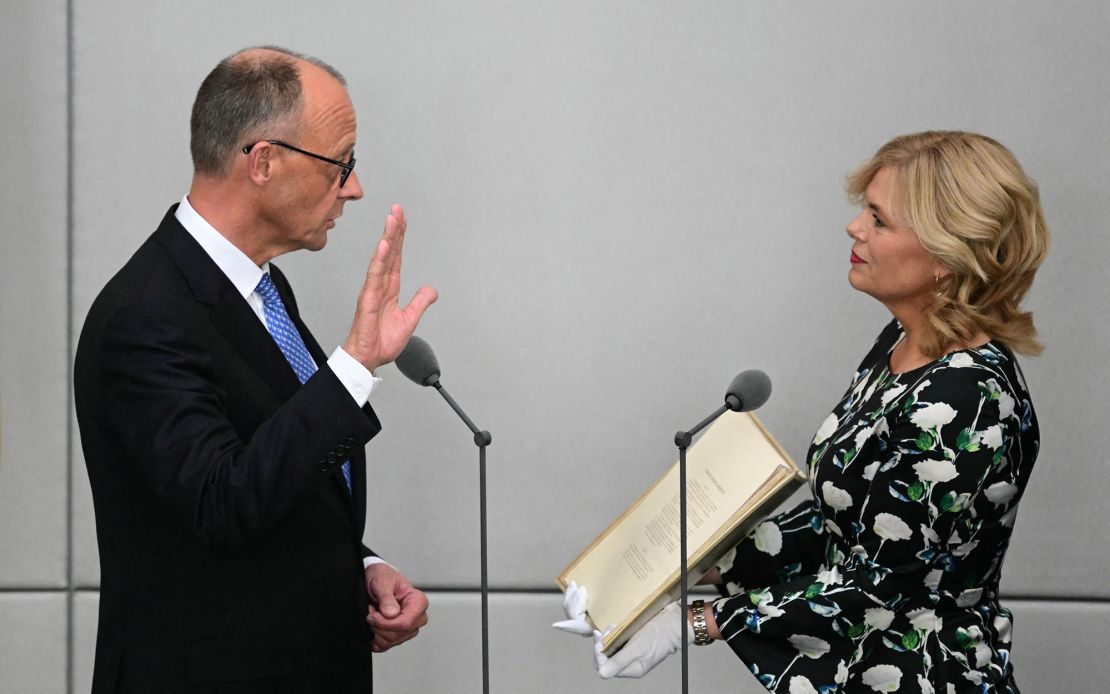
Building up a positive working relationship, though, is likely to be Germany’s major ambition for the White House meeting. And Merz’s previous roles and experience could play a big part in bringing that about.
Formerly the head of “Atlantik Brucke,” or Atlantic Bridge, a think tank that promotes German-US ties, Merz is known in Germany as being an ardent proponent of the transatlantic relationship.
He was a huge advocate for a US-EU trade agreement while at Atlantic Bridge and has spoken openly about his admiration for former US President Ronald Reagan. He also understands the corporate world, having served on numerous boards, including that of US global investment firm BlackRock.
Ischinger, now the chairman of the board of trustees of the Munich Security Conference, said: “If Donald Trump feels that he can trust Friedrich Merz, that’s very important, and vice versa… because, these are dangerous times, and there must not be any misunderstanding.”
Mayor, too, says much is at stake. She told CNN that although she believes the German government understands it needs to keep a good relationship with the White House, “deep inside, they are totally, deeply, utterly worried” about the Trump administration and its commitment to the defense of NATO allies in Europe, particularly given the threats posed by an increasingly bellicose Russia.
The conundrum, she said, is that Germany “can’t afford the Americans leaving,” because despite European commitments to increase spending on security, building up those capabilities takes years. “At the same time, we don’t want them to leave, because we think we are better off together,” she added.
She points to the German coalition agreement, (essentially a contract between the two coalition parties, the CDU and the center-left Social Democratic Party (SPD), on how they will govern Germany) and a major change in the constitution that could unlock half a trillion dollars of spending on the military, as indicators of the conflicting sentiment.
The revision of Germany’s constitutional debt brake, pushed through by Merz in March before he even formally became chancellor, was a “revolutionary change by German standards,” Mayor said. But it was forced through because “international relations have changed so much” that it appeared essential, she said.
At the same time, she said, the coalition pact reads as if everything about the transatlantic relationship is in fine working order. “If you’re such great partners, why did we need a constitutional change?” Major asked.
A Western diplomat, who was not authorized to speak ahead of the meeting, told CNN that Merz’s recent words have been “both tactical and strategic.”
The source said Merz sees Germany as “(needing) to grow up and take care of (itself),” adding that the chancellor does not see that as possible “in the next three years,” and thus it is still in Germany’s interest to have a good relationship with the US and find a way to work together.
Ischinger, too, sees pragmatism at play, suggesting that Merz could seek to replicate the personal relationship built by Macron with Trump.
The German chancellor will want to ensure that “Donald Trump understands that if Friedrich Merz is a committed European, that does not mean that Friedrich Merz is going to make the Atlantic wider,” he said.

